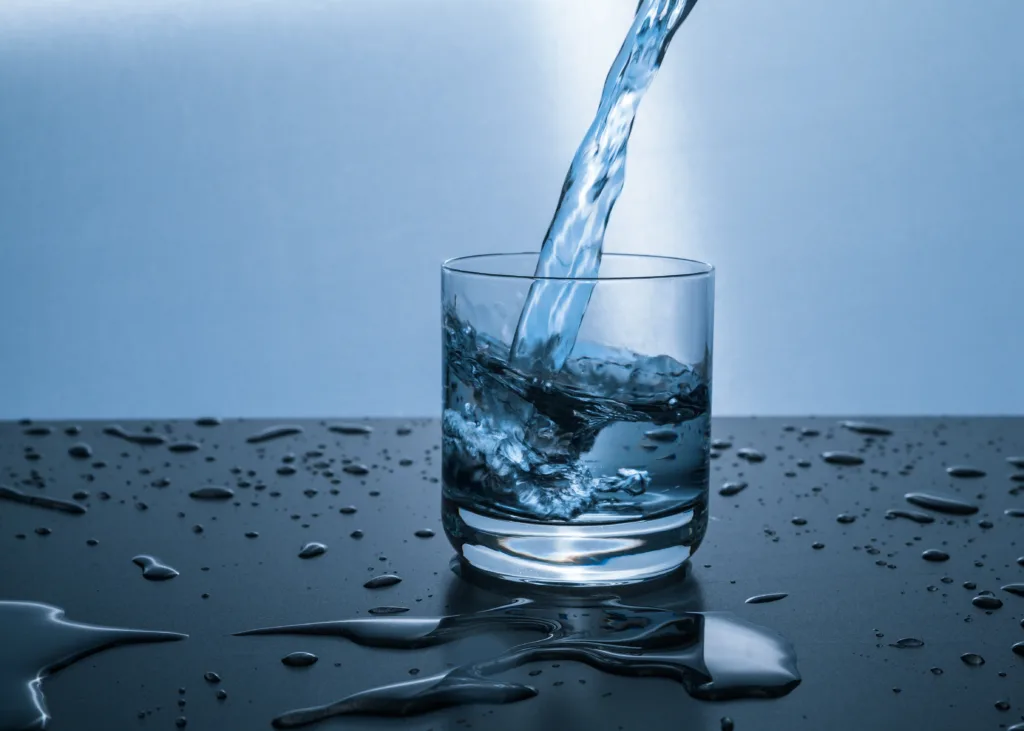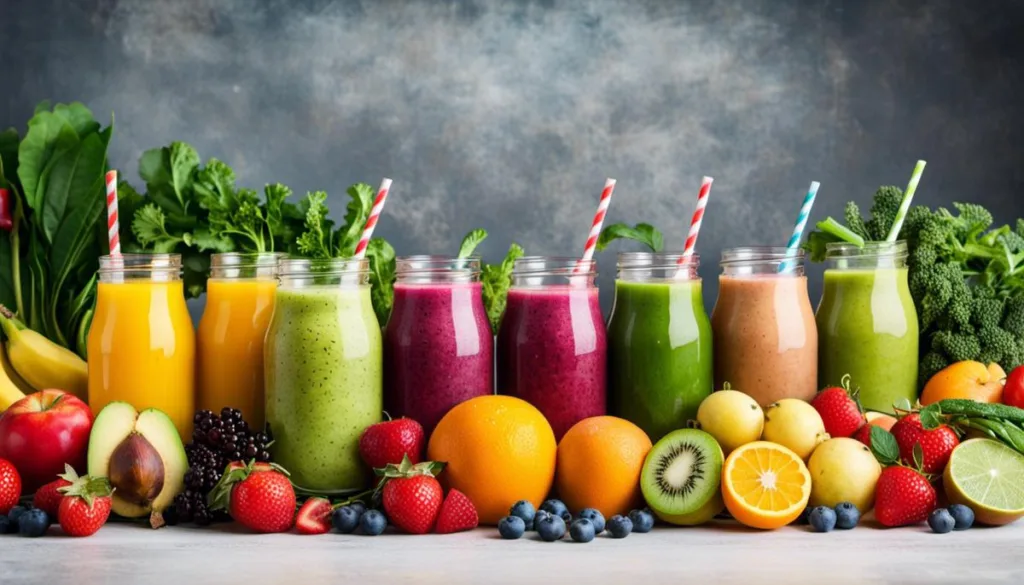Welcome to another Water Wednesday. In the quest to shed unwanted pounds, most individuals focus on diet and exercise. However, there’s an additional factor that might significantly influence the rate at which you lose weight. It’s as simple as the temperature of the water you drink. Yes, you heard it right. The temperature of your water can impact your weight loss efforts.
Often overlooked, the importance of hydration in a weight loss plan cannot be overstated. Hydration aids in the elimination of toxins and the improvement of digestion. But did you know that a slight tweak in your water’s temperature could amplify its benefits for weight loss?
Scientific evidence suggests that drinking cold water could accelerate weight loss. A study involving 24 participants, half of whom drank 500 ml of cold water and the other half room temperature water, showed that both groups burned 2-3% more calories in the following 90 minutes. Interestingly, the group consuming cold water saw an increase in their body’s resting energy expenditure, which is the number of calories burned during rest.
Moreover, staying hydrated can help control overeating, a common obstacle in weight loss. Many confuse thirst with hunger, leading to unnecessary calorie consumption. A tall glass of water when hunger strikes post-meal could prevent you from overindulging.
Starting the day with a glass of warm water can also kickstart your metabolism, facilitating more calorie burn. Remember, the faster your metabolism, the quicker you’ll shed those extra pounds. So, the answer is yes, the temperature of your water can indeed affect your weight loss efforts.

Debunking the Myth
The Role of Water in Weight Loss
Water is often hailed as a key component of any weight loss journey. While it is true that staying hydrated is beneficial for overall health, it is important to understand the role water plays in weight loss. Drinking water alone is not a magic bullet for shedding pounds, as some may believe. Rather, it is just one piece of the puzzle in maintaining a healthy lifestyle.
The Limited Evidence for Water’s Impact on Calorie Burning
There have been claims that drinking water can increase calorie burning and aid in weight loss. However, the evidence supporting this claim is limited. Only one study has shown a slight increase in calorie expenditure among individuals who consumed more water, and even then, the effect was minimal – just a few extra calories burned per day.
While it is true that our bodies need water to carry out various metabolic processes, relying solely on water consumption to burn calories and lose weight is not a scientifically proven strategy.
Does Water Make You Feel Fuller?
Another popular belief is that water can make you feel fuller, thereby reducing your overall calorie intake. However, there is no concrete evidence to support this claim. While staying hydrated can help curb excessive snacking or overeating in some cases, it is not a guaranteed appetite suppressant.
If you find it difficult to drink plain water, there are alternative fluid options that can keep you hydrated. Keep in mind that while these alternatives may provide hydration, they may also contain additional calories or artificial additives. Some options include drinking diet soda or green tea, mixing mineral water with juice, or adding a low-calorie powdered beverage mix to water.
Alternative Fluid Options for Hydration
- Diet Soda or Green Tea: These beverages can provide hydration without the need for plain water. However, be mindful of the potential health effects of artificial sweeteners or excessive caffeine consumption.
- Mineral Water with Juice: Mixing mineral water with a splash of juice can add flavor to your hydration routine. Just be cautious about the sugar content in the juice and opt for healthier, low-sugar options.
- Low-Calorie Powdered Beverage Mix: If you prefer flavored drinks, adding a low-calorie powdered mix to your water can make it more enjoyable to drink. Just ensure that the mix you choose is low in sugar and artificial additives.
Coffee and Caffeinated Beverages
Contrary to popular belief, coffee and other caffeinated beverages do contribute to hydration. While caffeine is a diuretic, meaning it can increase urine production, the amount of fluid retained by the body outweighs the fluid lost. This is especially true for individuals who regularly consume caffeine, as their bodies adapt to its effects.
However, it is important to consume coffee and caffeinated beverages in moderation. Excessive caffeine intake can lead to negative health effects, such as increased heart rate, jitteriness, or sleep disturbances. Additionally, some coffee additives like cream and sugar can add unnecessary calories to your diet.
In conclusion, the myth that the temperature of drinking water affects weight loss chances is unfounded. While there may be a marginal increase in calorie expenditure from consuming ice-cold water, it is not significant enough to make a substantial impact on weight loss efforts.
If your goal is to lose weight, it is recommended to focus on evidence-based weight management programs that incorporate balanced nutrition and portion control. These programs, such as EatRight by UAB or Volumetrics, emphasize consuming lower-calorie, nutrient-dense foods that can help you feel fuller and satisfied.
Remember, while water may not directly lead to weight loss, staying properly hydrated is crucial for overall health and well-being. So, make sure to drink enough water throughout the day, along with incorporating a well-rounded diet and regular physical activity into your weight loss journey.

The Truth about the Temperature of Drinking Water and Weight Loss
There has been a long-standing debate about whether the temperature of the water we drink has any effect on weight loss. Some claim that drinking ice-cold water can boost metabolism and lead to more calorie expenditure, while others argue that the temperature of the water is insignificant in terms of its impact on weight loss. In this article section, we will explore the truth behind the temperature of drinking water and its relationship with weight loss.
The Ice-Cold Water Myth
One common belief is that consuming ice-cold water can help with weight loss. The theory behind this is that when you drink cold water, your body has to work harder to warm it up to body temperature, which in turn burns more calories. However, recent research has largely debunked this myth. Studies have shown that the number of calories burned from drinking cold water is negligible and doesn’t have a significant impact on weight loss. So, while ice-cold water may feel refreshing, it doesn’t have any magical calorie-burning properties.
The Insignificant Impact on Calorie Expenditure
When it comes to weight loss, the temperature of the water you drink has minimal impact on calorie expenditure. The main factor that contributes to weight loss is the overall calorie intake and expenditure throughout the day. Drinking cold water may slightly increase calorie expenditure, but the effect is so small that it’s not worth relying on as a weight loss strategy.
Instead of focusing on the temperature of the water, it’s more important to pay attention to the overall quality and quantity of your water intake. Staying hydrated is crucial for overall health and well-being, and it can indirectly support weight loss by maintaining proper bodily functions and boosting metabolism.
In conclusion, while the temperature of the water you drink may have some minor effects on your body, it doesn’t play a significant role in weight loss. The key to achieving and maintaining a healthy weight lies in a balanced diet, regular exercise, and overall lifestyle habits. So, enjoy your water at a temperature that is comfortable for you, and remember that staying hydrated is essential for your overall health.

Focus on Eating Foods with High Water Content Instead
The Importance of Hydrating Foods in Weight Management
When it comes to weight management, hydration is often overlooked. While drinking water is essential for overall health and can support weight loss, another effective strategy is to focus on eating foods with high water content. These hydrating foods not only help to keep you feeling full and satisfied but also provide essential nutrients for your body.
Incorporating these hydrating foods into your diet can have multiple benefits for weight management. Firstly, they can contribute to a lower calorie intake. Many foods with high water content are low in calories, which means you can enjoy larger portions without consuming excessive calories. This can help prevent overeating and promote a calorie deficit, which is necessary for weight loss.
Additionally, hydrating foods can aid in digestion. The high water content helps to soften stool and promote regular bowel movements, which can alleviate bloating and discomfort. A healthy digestive system is crucial for efficient nutrient absorption and waste elimination.
Incorporating Fruits, Veggies, and Broth-Based Soups
One of the easiest ways to increase your intake of hydrating foods is by incorporating more fruits and vegetables into your meals. These natural, whole foods not only provide vital vitamins, minerals, and fiber but also contain a significant amount of water. Some examples of hydrating fruits include watermelon, strawberries, oranges, and grapefruit. For vegetables, cucumbers, celery, lettuce, and zucchini are excellent choices.
In addition to fruits and vegetables, broth-based soups can be a satisfying and hydrating option. Soups made with clear broths and plenty of vegetables offer a combination of water, nutrients, and flavors. Consuming a bowl of soup before a meal can help reduce overall calorie intake by promoting feelings of fullness.
To make it easier to incorporate hydrating foods into your diet, consider the following tips:
- Snack on hydrating fruits and vegetables: Keep a bowl of sliced fruits or vegetables readily available for snacking. This can help curb cravings for less healthy options while providing hydration and essential nutrients.
- Start your meals with a hydrating salad: Begin your meals with a salad made with hydrating vegetables, such as lettuce, cucumber, and tomatoes. This can help you feel full and satisfied, reducing the likelihood of overeating during the main course.
- Swap out sugary beverages for water-rich alternatives: Instead of reaching for sugary drinks like soda or juice, opt for water-rich alternatives like infused water, herbal teas, or sparkling water. These options provide hydration without unnecessary calories.
Remember, incorporating hydrating foods into your diet is not only beneficial for weight management but also for overall health. By choosing natural, whole foods with high water content, you can nourish your body while working towards your weight loss goals.
Conclusion
In conclusion, the temperature of water does not have a significant impact on weight loss. Although there is a myth that suggests ice-cold water can help burn extra calories, the truth is that any potential calorie burn is minimal and will not greatly contribute to weight loss efforts. Instead of focusing solely on drinking water for weight loss, it is advisable to consider long-running weight management programs based on real research, such as EatRight by UAB or Volumetrics.
These programs emphasize the consumption of lower-calorie, high-water content foods like fruits, vegetables, and broth-based soups, which can help you feel fuller and satisfied without consuming excessive calories. While staying hydrated is important for overall health, there is no definitive evidence to support the claim that the temperature of water affects weight loss chances.
Thank you for reading this post, don't forget to subscribe to our free newsletter
!